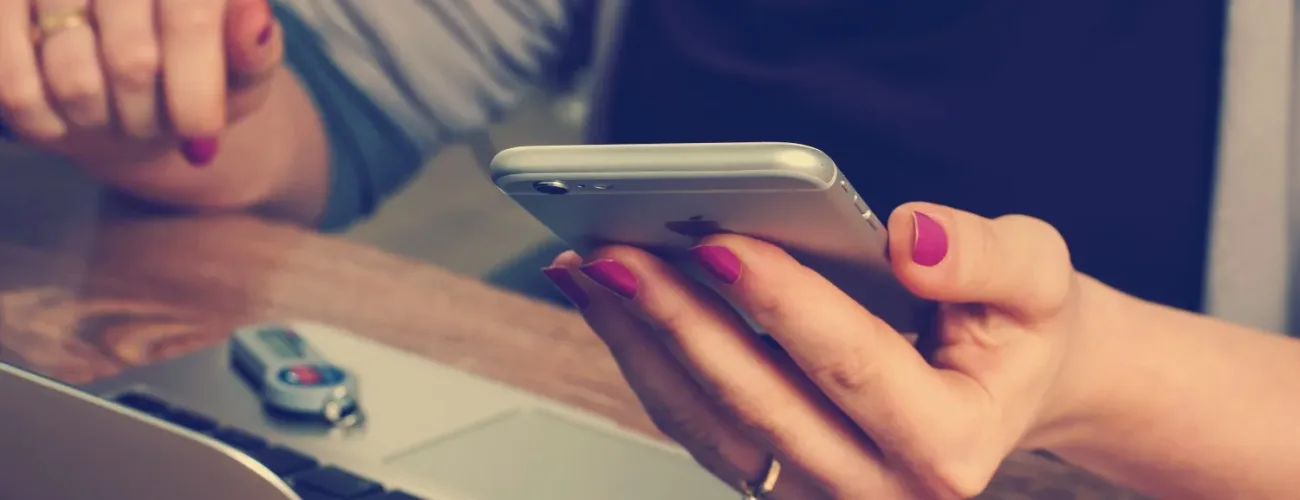Many clients report to us that their former partner has installed tracking devices on their phones and devices or hacked into their social media accounts. Here is some advice on how to protect your client or yourself from cyber-stalking.
This is sadly a common complaint of women who experience coercion and control in their intimate partner relationships and too frequently reported in criminal proceedings following the death of a domestic violence victim or cases such as Hannah Clarke[1] and Lisa Harnum[2].
New research[3] conducted by the Molly Dragiewicz and Bridget Harris from Queensland University of Technology in a study funded by the Australian Communications and Consumer Action Network (ACCAN) found that 100% of survivors abused by an intimate partner reported tech abuse began or escalated at separation.

Types of Abuse
The most common types of abuse reported were repetitive texting, emailing, GPS, cloud and Facebook monitoring. This was especially an issue for those navigating arrangements for children post-separation.
Incidents of technology facilitated abuse are potentially Commonwealth carriage offences and offences under the Crimes (Domestic and Personal Violence) Act 2007 in New South Wales and should be reported to Police. Stalking, harassment and intimidation can result in Apprehended Domestic Violence Orders or be breaches of those Orders once made which is a criminal offence.

How to protect your client or yourself from cyber-stalking
Frequent assistance is required to check privacy settings, organise replacement devices and prevent hidden tracking. Steps clients can take to secure their devices and reduce the risks include:
- Have a data security professional assess your network/devices. If necessary, get a new device.
- Encrypt your data, laptops, external drives, portable devices.
- Use encrypted messaging apps such as Signal/Use multi-factor authentication
- Setup new email account and do not access it on shared devices.
- Ensure your phone account is not accessible through online accounts detailing call history, and location.
- Change all passwords on all social media and devices. Put a passcode on all phones.
- Check privacy settings on device and social media. Stay off social media if possible.
- Turn off Bluetooth, GPS when not using. Turn off location sharing on devices.
- Ensure devices are not linked through Apple ID.
- Ensure photos uploaded to social media are not geo-tagging your location.
- Delete unknown apps on your phone, Monitor for excessive battery use.
[1] https://www.abc.net.au/news/2020-02-21/brisbane-car-fire-hannah-clarke-rowan-baxter-family-violence/11985024; https://9now.nine.com.au/a-current-affair/camp-hill-car-fire-family-say-hannah-clarke-sacrificed-everything-for-her-children/fe2d7a20-5f55-4fed-8e73-4a3feb214040
[2] R v Gittany (No 5) [2014] NSWSC 49 https://www.caselaw.nsw.gov.au/decision/54a63cd63004de94513db88a
[3] Dragiewicz, M., Harris, B., Woodlock, D., Salter, M., Easton, H., Lynch, A., Campbell, H., Leach, J. & Milne, L., (2019). Domestic violence and communication technology: Survivor experiences of intrusion, surveillance, and identity crime, Australian Communications Consumer Action Network, Sydney. http://accan.org.au/files/Grants/Domestic%20violence%20and%20communication%20technology%20Survivor%20experience%20of%20intrusion%20surveillance%20and%20identity%20crime.pdf




